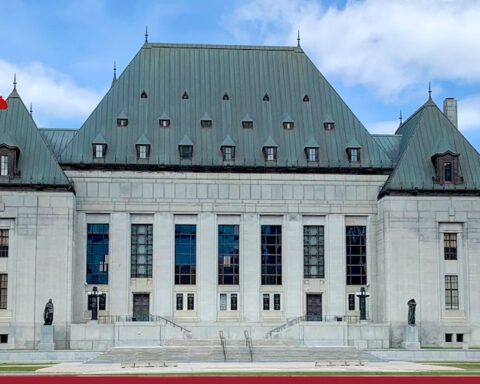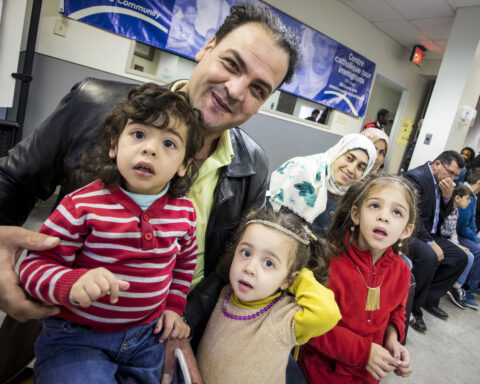The Federal Court has denied a request by scores of new Canadians to modify the lottery system that determines whose parents are invited to immigrate into the country, which they say discriminates against one-child families, especially from China.
The Court, in a decision released this morning, said it is up to the Minister of Immigration, Refugees and Citizenship Canada (IRCC) to fix the “design-flaw” of the Parents and Grandparents Sponsorship Program (PGP) lottery, as the test cases brought before it involved the process relating to the lottery and not actual applications that resulted in a violation of the applicants’ rights.
“All the applicant families were asking for was an equal chance to enter the lottery and get an invitation to apply to bring their parents and grandparents to Canada,” said Richard Kurland, a Vancouver-based immigration lawyer.
Kurland said the design flaw in the lottery process favours families that have more children than others.
“Families with one child get one lottery ticket. Families with more than one child get more than one lottery ticket. The more children in a family, the more lottery tickets,” he said.
“It is especially discriminatory against Chinese-Canadians trying to reunite with their parents or grandparents because of China’s one-child policy…our Chinese-Canadian families get one lottery ticket only for their families, while everyone else gets one or more (usually more) tickets…That is discrimination.”
Kurland is representing 80 families from various countries of origin fighting for an equal chance to get an invitation to apply for the PGP immigration lottery.
A further 325 applications for judicial reviews of the lottery process were being held in abeyance pending the disposition of today’s decision.
Mathematically disadvantaged
One of the litigants is Ramandeep Singh Kamboj, who completed his master’s program at the University of Alberta, after arriving in Canada in 2013.
“I am an only child and I have been trying to sponsor my parents in India for the last three years,” said Kamboj, who applied for the lottery in 2020 but was not selected.
“Mathematically, my chances of being selected is greatly reduced compared to households with multiple children who apply to sponsor their parents…multiple applications for the same set of parents by different children increases the chances of being selected…As an only child, I get one chance. They get many chances to apply,” he said.
He also said that an easy fix to the problem would be a randomized lottery selection process that is based on the name of the parent or grandparent, not the names of the potential sponsor or sponsors.
“This alternative would correct the favouring of parents or grandparents with more than one potential sponsor…That way all have an equal chance of getting invitations to apply and levels the playing field,” he said.
Kurland said the PGP lottery invitations are in high demand with sponsors having only one-in-five-chances in the lotteries to get an invitation to apply.
This year, IRCC will be accepting a record number of up to 30,000 applications under the PGP program, the largest ever single intake.
“The Court decided today that it has no power to review the issue. There is no appeal, and so the Court has effectively pushed this on the Minister to fix,” said Kurland, who predicts a political backlash, especially from the Chinese-Canadian community.
Dr. Paul Evans, a professor at UBC’s school of public policy and global affairs, in a supporting affidavit on behalf of the two test cases, said the one-child policy was introduced by the Communist regime in China to control population growth. It was replaced in 2015 with a universal two-child policy.
“I verily believe that most people who immigrated from China to Canada between 2018 and 2020 were from one-child families,” he said.
Lawyers representing the Minister contended “that the (test) applicants did not present any evidence or argument that the randomized selection process is discriminatory based on Chinese national or ethnic origin or on the basis of family status.”
“No legal obligations have been imposed on the Applicants, and while they may have been disappointed that they were not invited to submit a sponsorship application under the Sponsorship Program, the Applicants have not established that this is a matter that affects their rights, imposes legal obligations upon them, or prejudicially affects them directly. Consequently, this matter is not judicially reviewable,” they said.
NCM has reached out to IRCC for comment.
A multiple-award winning journalist, Fabian Dawson is an internationally acclaimed author, filmmaker and media expert. His work over the last four decades spans the globe and he also serves as a consultant/strategic advisor to a variety of international companies. As deputy editor-in-chief of The Province, part of the Postmedia chain, Dawson led initiatives within a special publications group to provide directed content for a variety of organisations. He was named the 2019 recipient of the Bruce Hutchison Lifetime Achievement Award at Jack Webster Awards. Dawson has been invited by the governments of India, Malaysia, Taiwan, China, Hong Kong and the United States to act as a media observer/advisor on a variety of Asian-Canada issues. Dawson, now operates FD Media, which specializes in harnessing editorial assets to revenue generating opportunities.





